As pet owners, we often wonder if our furry friends can enjoy the same foods we do. One common query is, “can dogs eat salami?” While it might be tempting to share this savory treat with your dog, it’s important to understand the potential risks and benefits. In this article, we will delve into whether dogs can safely consume salami, the potential health risks, and what alternatives you might consider.
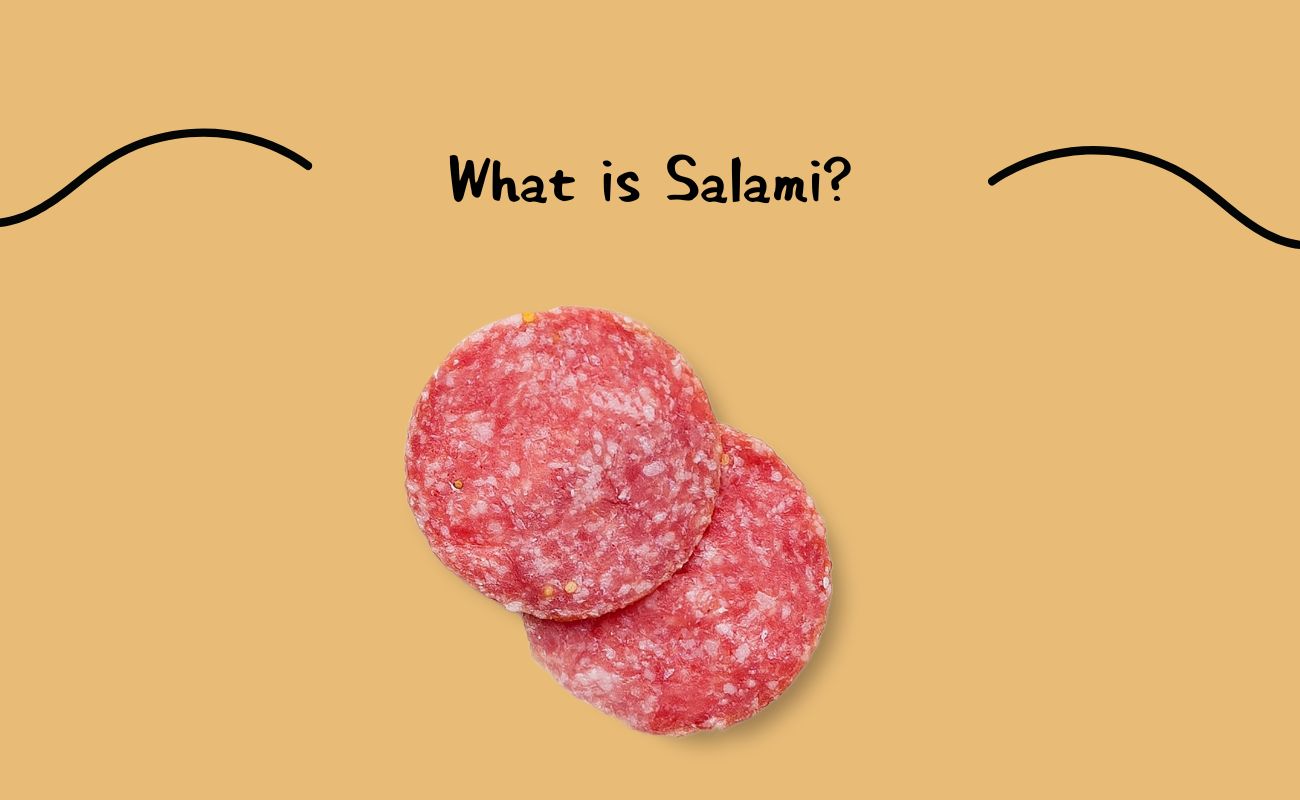
What is Salami?
Salami is a type of cured sausage made from fermented and air-dried meat, typically pork. It’s seasoned with various spices and herbs, and often contains ingredients like garlic, salt, and nitrates. These ingredients, while delicious to humans, can pose certain health risks to dogs. Before deciding to give your dog a slice of salami, it’s crucial to understand its composition and potential impact on their health.

Can Dogs Eat Salami?
The short answer to the question “can dogs eat salami?” is no, it is not recommended. While a small piece of salami occasionally might not harm your dog, regular consumption can lead to significant health issues. Salami contains high levels of sodium and fat, which are not suitable for dogs in large amounts. Additionally, ingredients like garlic and certain spices can be toxic to dogs.
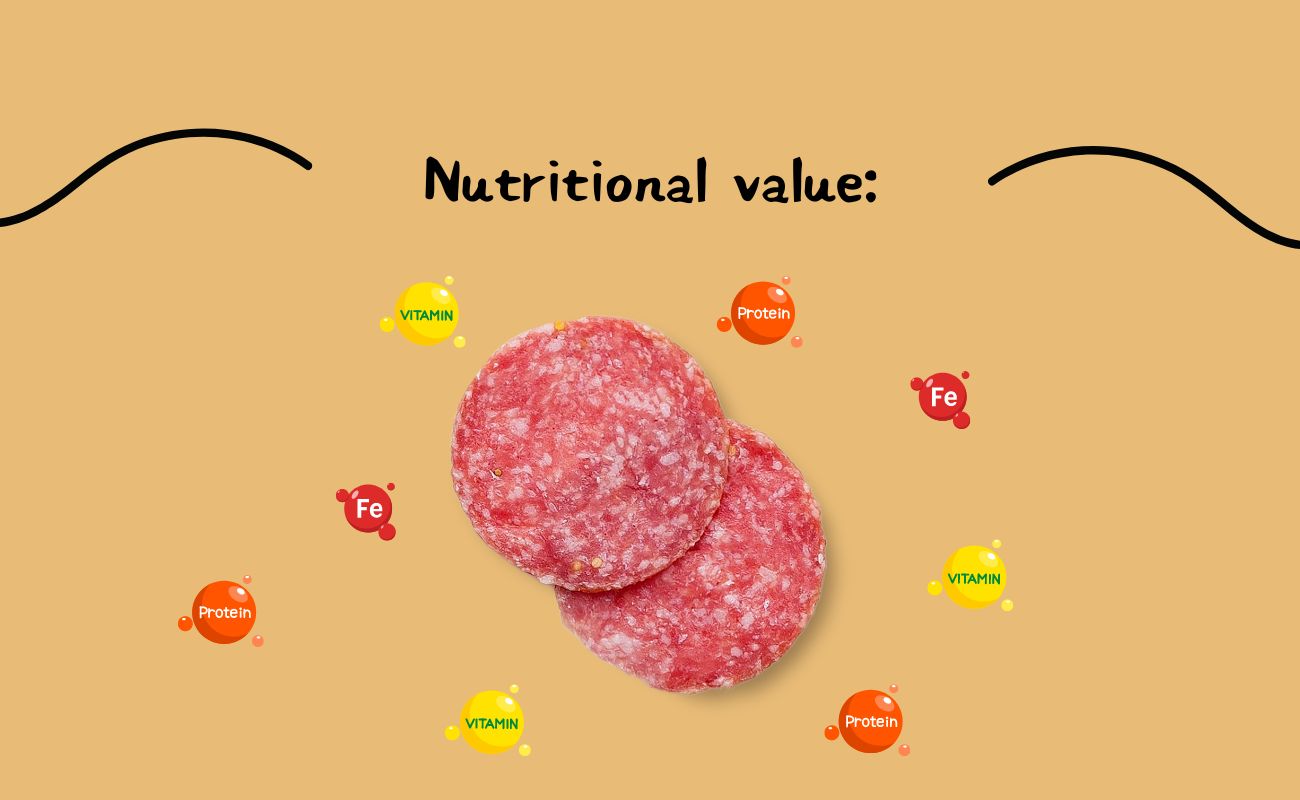
Nutritional value:
Here’s a detailed table of the nutritional value of salami per 100 grams:
| Nutrient | Amount Per 100g |
|---|---|
| Calories | 407 kcal |
| Protein | 22.6 g |
| Total Fat | 34.3 g |
| Saturated Fat | 12.3 g |
| Monounsaturated Fat | 16.5 g |
| Polyunsaturated Fat | 2.5 g |
| Cholesterol | 85 mg |
| Sodium | 1780 mg |
| Potassium | 306 mg |
| Total Carbohydrates | 1.9 g |
| Dietary Fiber | 0 g |
| Sugars | 0 g |
| Calcium | 20 mg |
| Iron | 1.5 mg |
| Magnesium | 20 mg |
| Phosphorus | 180 mg |
| Zinc | 2.5 mg |
| Vitamin A | 17 µg |
| Vitamin C | 0 mg |
| Vitamin B6 | 0.4 mg |
| Vitamin B12 | 1.8 µg |
| Thiamin (Vitamin B1) | 0.6 mg |
| Riboflavin (Vitamin B2) | 0.3 mg |
| Niacin (Vitamin B3) | 4.5 mg |
| Folate (Vitamin B9) | 5 µg |
| Vitamin E | 0.3 mg |
| Vitamin K | 2.5 µg |
These values can vary slightly based on the specific type and brand of salami. Always check the packaging for the most accurate nutritional information.
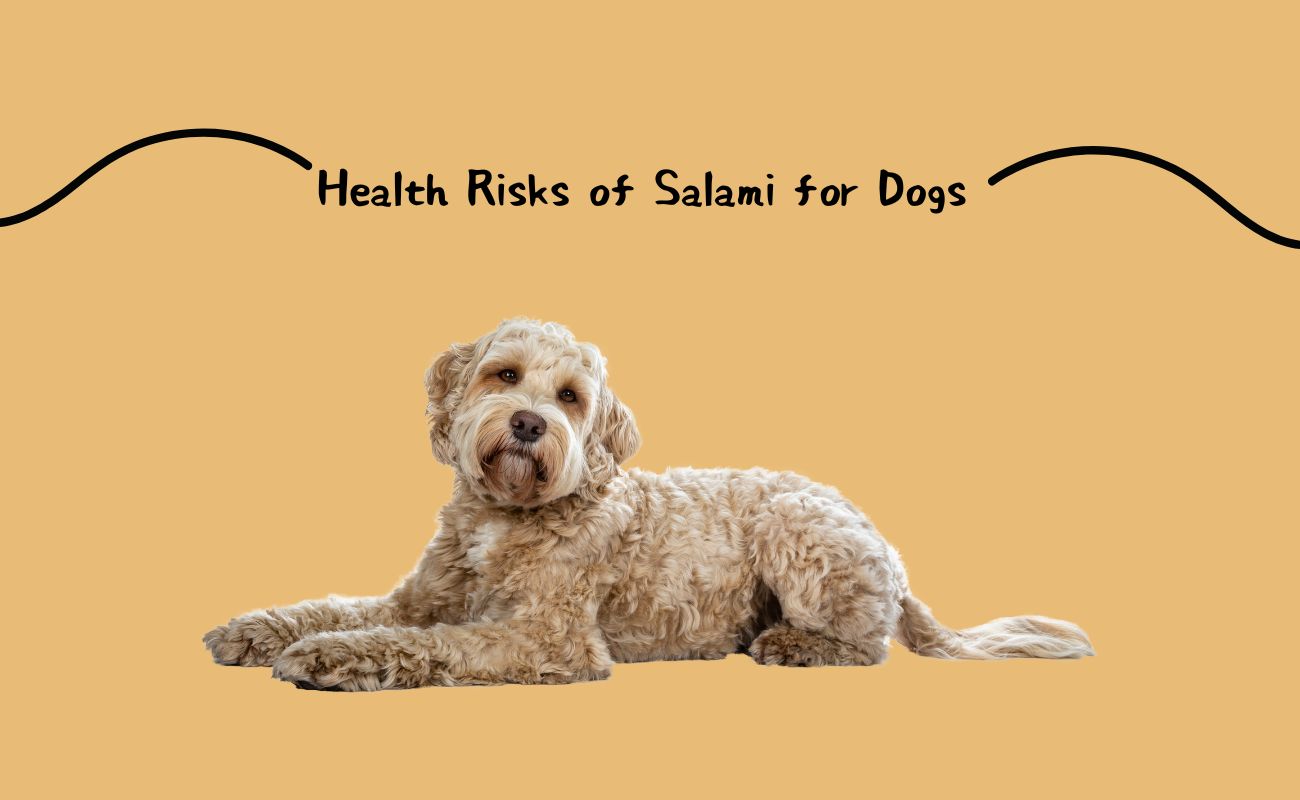
Health Risks of Salami for Dogs
High Sodium Content
Salami is notorious for its high sodium content. Dogs require much less sodium than humans, and excessive salt can lead to dehydration, high blood pressure, and even sodium ion poisoning. Symptoms of salt poisoning include vomiting, diarrhea, tremors, and seizures, which require immediate veterinary attention.
High Fat Content
The high fat content in salami can lead to obesity and pancreatitis in dogs. Pancreatitis is a painful condition where the pancreas becomes inflamed, leading to digestive issues and severe abdominal pain. Chronic consumption of high-fat foods like salami can significantly increase the risk of this condition.
Toxic Ingredients
Many types of salami contain ingredients like garlic and onions, which are toxic to dogs. Even in small amounts, these ingredients can cause hemolytic anemia, a condition where red blood cells are destroyed faster than they can be made. Symptoms include weakness, lethargy, and pale gums.
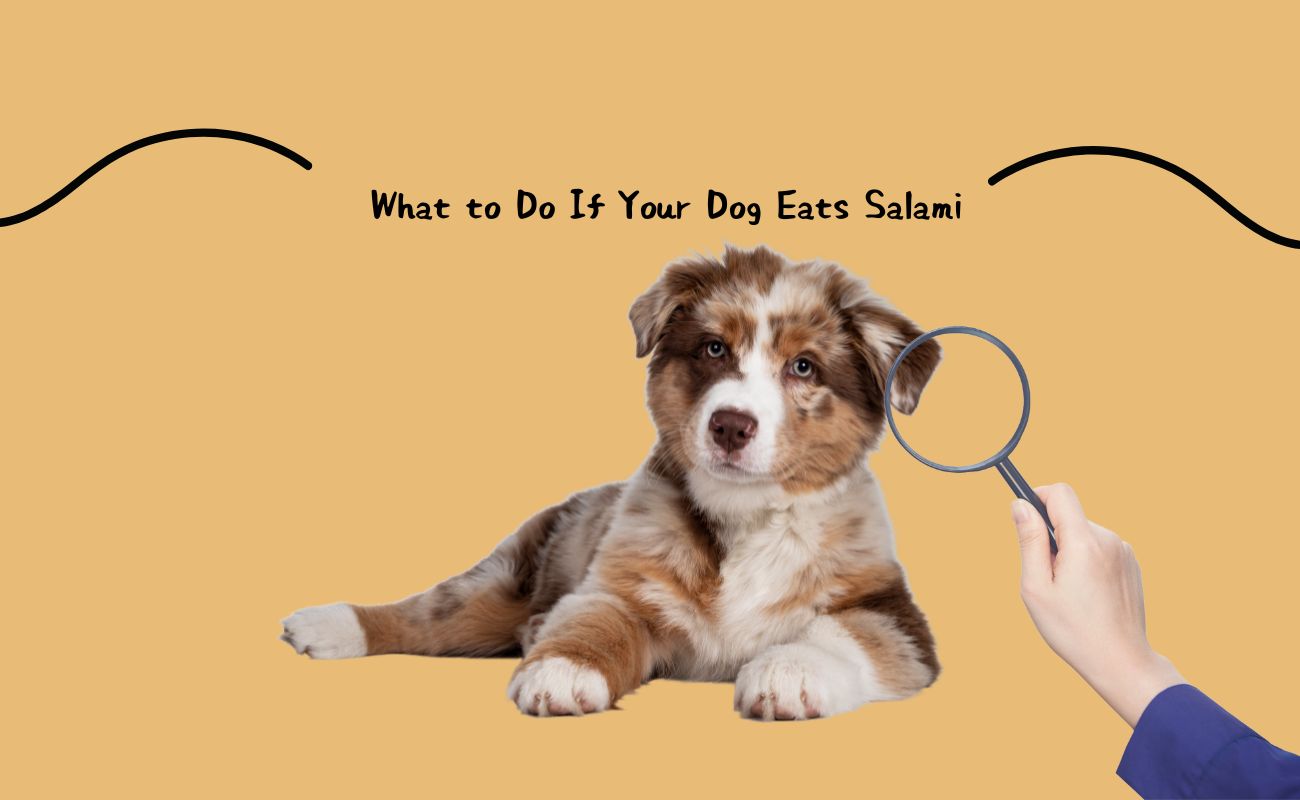
What to Do If Your Dog Eats Salami
If your dog accidentally consumes a small amount of salami, monitor them closely for any adverse reactions. Symptoms to watch for include vomiting, diarrhea, excessive thirst, and lethargy. If your dog shows any of these signs or if they have consumed a large amount, contact your veterinarian immediately.

Healthy Alternatives to Salami for Dogs
Instead of giving your dog salami, consider these healthier alternatives:
- Lean Meats: Cooked chicken, turkey, or beef without any seasoning can be a great source of protein.
- Vegetables: Carrots, green beans, and cucumber slices are low-calorie treats that many dogs enjoy.
- Fruits: Apples (without seeds), blueberries, and watermelon (without seeds) are safe and nutritious options.
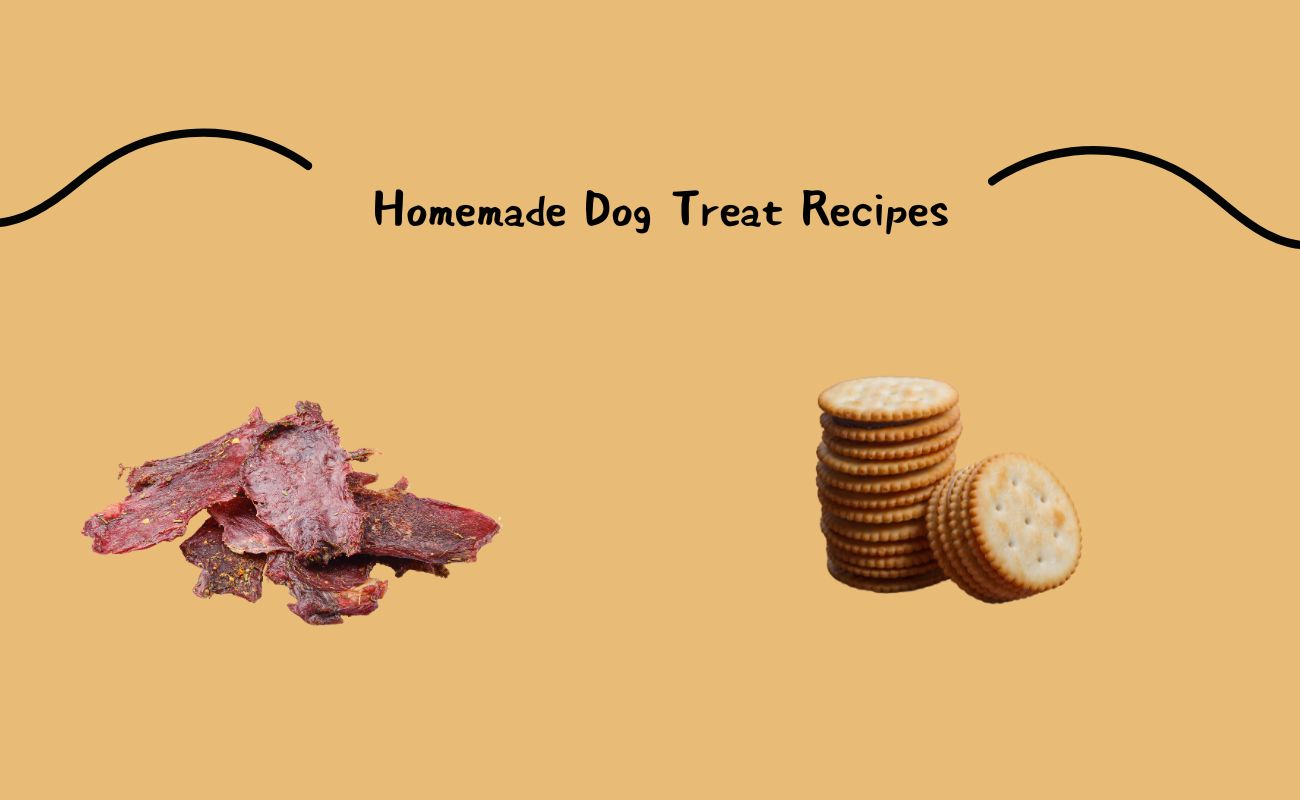
Homemade Dog Treat Recipes
Making homemade treats is a great way to ensure your dog is getting healthy snacks. Here are a couple of easy recipes:
Chicken Jerky
Ingredients:
- 2 chicken breasts Instructions:
- Preheat your oven to 200°F (93°C).
- Slice chicken breasts into thin strips.
- Place the strips on a baking sheet lined with parchment paper.
- Bake for 2 hours or until the chicken is fully dried and crispy.
- Let it cool before serving to your dog.
Peanut Butter Biscuits
Ingredients:
- 2 cups whole wheat flour
- 1/2 cup natural peanut butter (xylitol-free)
- 1 cup water Instructions:
- Preheat your oven to 350°F (175°C).
- Mix all ingredients in a bowl until a dough forms.
- Roll out the dough and cut into shapes with a cookie cutter.
- Place on a baking sheet lined with parchment paper.
- Bake for 20 minutes or until golden brown.
- Let them cool before giving them to your dog.
Conclusion:
Can Dogs Eat Salami?
In conclusion, while it might be tempting to share your salami with your dog, it is best to avoid it due to the high levels of sodium, fat, and potentially toxic ingredients. There are many healthier alternatives and treats that you can offer your dog to ensure they stay healthy and happy. Remember, when in doubt, always consult your veterinarian before introducing new foods into your dog’s diet.
By keeping your dog’s diet safe and nutritious, you can ensure they enjoy a long, healthy, and happy life by your side. So next time you wonder, “can dogs eat salami?” you’ll know the answer and can make a well-informed decision for your furry friend.









